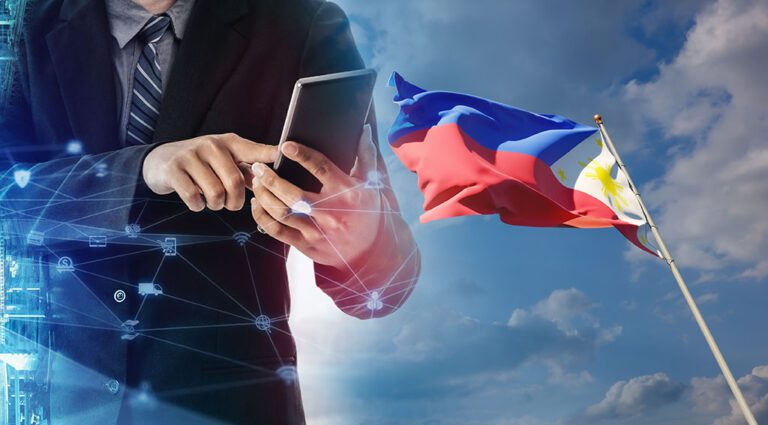The fintech sector is reshaping the financial landscape in 2024, driving innovation and driving financial inclusion in unprecedented ways. With its booming digital economy, the Philippines has become a key player in this global movement.
From the rise of digital banking to revolutionary advances in stablecoins and anti-fraud measures, the fintech industry is tackling long-standing challenges while creating new opportunities. Let’s explore the top stories shaping the fintech ecosystem in the Philippines in this eventful 2024.
Digital banking: a revolution in deposits and the challenges ahead

Kicking off the top fintech news in 2024 in the Philippines, we can witness an ongoing transformation in digital banking. By mid-2024, the country six digital banks have collectively accumulated over PHP80 billion in depositsreflecting a remarkable annual growth rate of 32.26%.
This impressive growth demonstrates the sector’s ability to reach underserved markets, often overlooked by traditional banks. With a depositor base now comprising 8.7 million accounts, digital banks are redefining financial access for millions of people.
However, profitability remains a significant obstacle. Since this year, only two of six digital banks managed to achieve profitability. High non-performing loan rates – 14.49% compared to 3.24% for the banking sector as a whole – pose a major challenge.
Such disparities highlight the need for innovative credit management strategies and stronger risk mitigation frameworks. As the Bangko Sentral ng Pilipinas (BSP) prepares to welcome four new digital banks by 2025, competition will demand unique value propositions and revolutionary business models from new entrants.
Digital payments exceed expectations

An important step was taken when the Philippines exceeded its target of 50% digital payment transactions. By 2023, 52.8% of all retail payment transactions were made digitally, up from 42.1% in 2022.
He highlights the success of BSP Digital Payments Transformation Roadmap and the growing adoption of e-money accounts among Filipinos. Beyond their convenience, digital payments fuel economic growth by enabling faster remittances, streamlining business operations, and enabling small businesses to join the digital economy.
The move towards a cashless society reflects the collaborative efforts of the BSP, businesses and consumers to build an inclusive financial ecosystem. Maintaining this momentum will require continuous improvement in safety and efficiency.
Wholesale CBDC changing interbank transfers

A crucial development in the Philippines’ fintech journey is the BSP Agila Projecta wholesale central bank digital currency (CBDC). This initiative allows interbank transfers 24/7, even on public holidays. Project Agila leverages distributed ledger technology to improve liquidity management and minimize settlement risks.
After being successfully tested with financial institutions, the project promises to improve the efficiency and resilience of the national payment system.
This is largely due to wholesale CBDCs. It represents a forward-thinking approach to large-value payment systems, with potential applications in cross-border payments and securities transactions that could transform financial operations.
Fighting financial cybercrime with AFASA
THE Anti-financial account scam law (AFASA)promulgated in 2024, constitutes another important step in the fight against financial cybercrime. AFASA targets activities such as money mule operations and social engineering scams, imposing sanctions to deter these financial crimes. This law empowers the BSP to investigate violations and promotes increased cooperation between government agencies and financial institutions.
This legislation illustrates a proactive effort to protect consumers and maintain the integrity of the financial system. The emphasis on strong risk management systems within financial institutions further strengthens public trust in digital financial services.
Pioneering Stablecoins for financial inclusion

THE PHPX introductionthe first bank-backed stablecoin in the Philippines, marks a major step forward in financial innovation. Developed by leading financial institutions in partnership with Web 3.0 company JUST Finance, PHPX aims to improve financial efficiency by reducing remittance costs and enabling seamless cross-border transactions.
Coins.ph also launched PHPCa peso-pegged stablecoin on the Ronin blockchain, aimed at the thriving Web 3.0 gaming community. These projects demonstrate the Philippines’ leadership in blockchain technology and its potential to drive financial inclusion through accessible and cost-effective digital financial tools.
Promote digital payment of salaries

In a country where 70% of private sector salaries are still paid in cash, the transition to digital salary payment represents a crucial step towards financial inclusion.
Led by the BSP and the Department of Labor and Employment (DOLE), this initiative aims to provide workers with faster and more secure access to their income while promoting financial stability through savings and investment products. ‘insurance.
For employers, digital salary payments improve productivity, improve accuracy and increase security. The shift from monetary to digital methods allows businesses to formalize their operations and unlock new financial opportunities. These efforts highlight the transformative potential of digital wage systems for workers and employers alike.
A vision for the future
As the fintech sector advances, the country is proving to be a pioneer in innovation and financial inclusion. The top fintech stories of 2024 in the Philippines illustrate a vibrant and resilient ecosystem.
However, challenges remain. Ensuring sustainable growth in digital banking, mitigating cybersecurity risks, and achieving equitable access to digital financial tools will require continued innovation and collaboration.
Therefore, policymakers, financial institutions and technology providers must work together to create an environment of trust, inclusion and resilience.
The transformative potential of Fintech lies in its ability to bridge gaps and create opportunities for everyone. By harnessing this potential, the Philippines can set a global standard in leveraging technology to build a more equitable financial future.
Featured image credit: edited from Freepik


